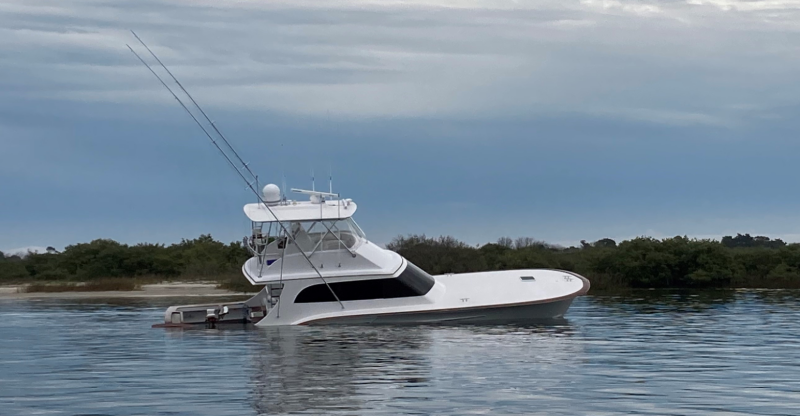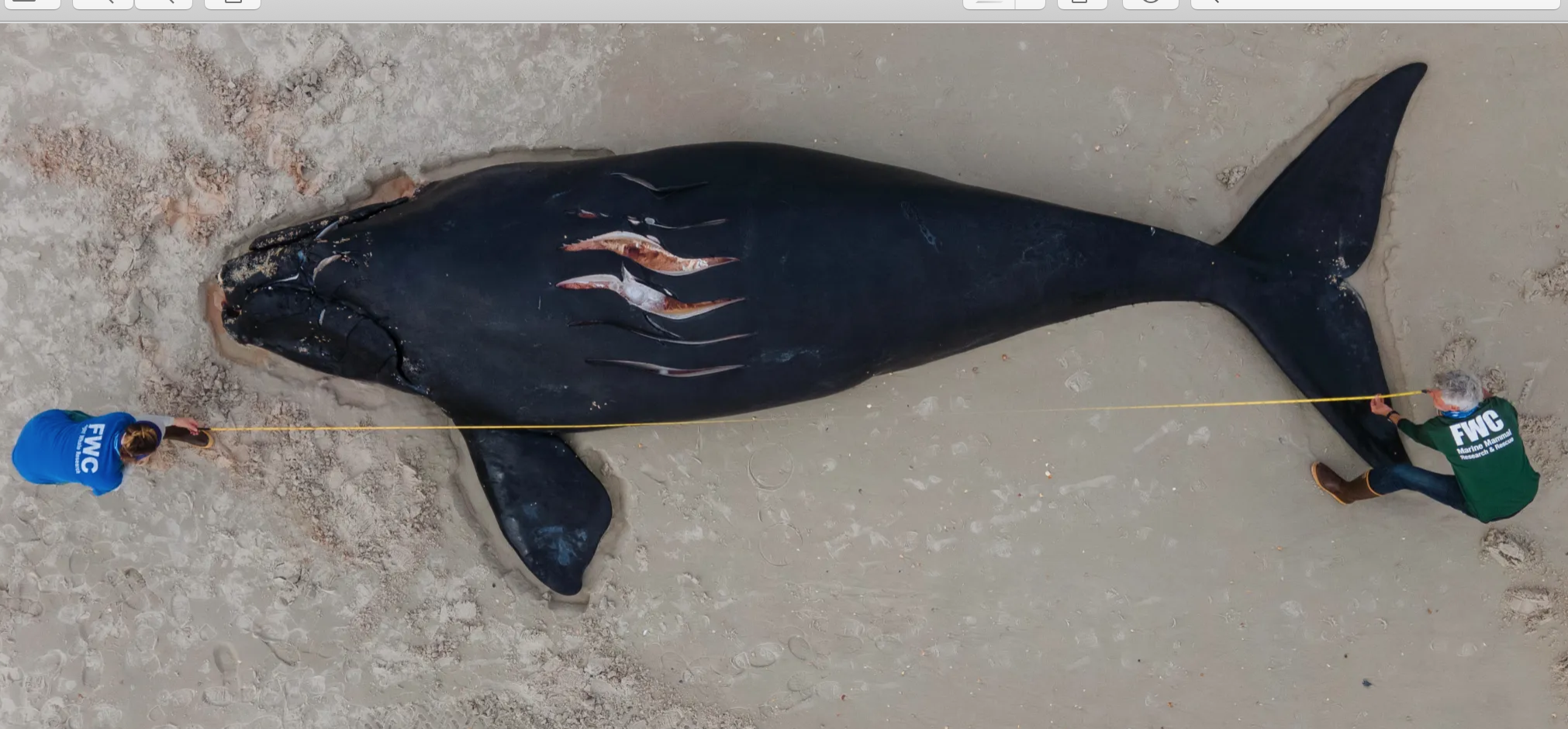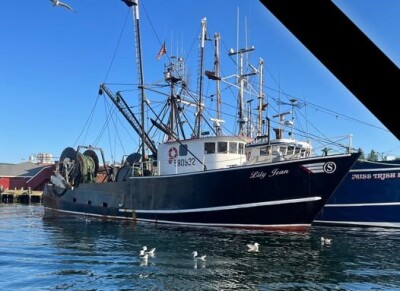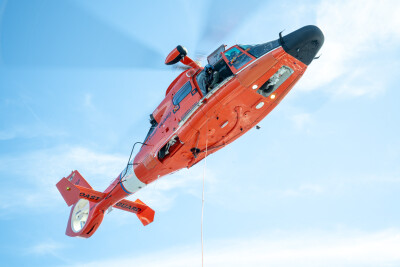A 54-foot sportfishing yacht headed home into St. Augustine, Fla., struck and killed an endangered juvenile right whale in February 2021 – and barely made it back to the inlet with eight passengers before sinking, a $1.2 million loss.
The death of the young whale, calf of a female known as ‘Infinity’ to whale researchers who track the North Atlantic right whale population, was a setback for one of the world’s most endangered marine mammal populations, now estimated at less than 350 animals. Ship strikes and fishing gear entanglement are threats to the slow-moving right whales that typically swim close to the sea surface.
Recreational boat traffic is an underestimated threat, as Georgia state wildlife experts note in a Feb. 11 account of the St. Augustine accident.
The online posting from the Wildlife Resources Division of the Georgia Department of Natural Resources gives a vivid look at the experience of Shane Ryan, a 48-year-old professional sportfishing captain who for five years had been running the About Time, a 54-foot custom-built Jarret Bay.
A number of female right whales migrate from Northeast U.S. and Canada waters to warmer winter waters off South Carolina, Georgia and Florida to birth their calves. State wildlife officials in the Southeast work closely with NMFS to track and monitor the animals.
“Since 2005, there have been at least five incidents of recreational boats colliding with right whales in the Southeast,” according to Georgia officials. “Those include a 43-foot Grand Banks (recreational trawler) off Georgia in 2005 – the adult female whale later died – and a 30-foot Pursuit (sportfishing boat) off South Carolina in 2009, which left more than $100,000 in damages and the whale’s status unknown.”
Scars and other injuries noted by whale observers indicate there are many more close encounters with vessels, experts say.
On Feb. 12, 2021 a party of eight anglers on the About Time were returning to the Conch House Marina in St. Augustine after a day offshore fishing for wahoo. The boat was inbound to the inlet channel, making about 21 knots close to sunset, and Ryan was at the helm using visual and radar as he and the mate scanned the water surface ahead.
The whale Infinity and her calf had been seen earlier that day north of St. Augustine Inlet. In the channel, the About Time collided with them just before 6:30 p.m., bringing the boat to a complete stop, flinging its occupants forward, and shutting down both 1,000-hp engines.
There was catastrophic damage to the starboard strut and propeller that cut into the hull, flooding the engine room. Finally getting the port engine restarted, Ryan was able to get the boat and passengers to safety – grounding on a mudflat inside the inlet before the boat could sink in the Atlantic.

The right whale calf was found dead the next day on the beach at Anastasia State Park near the inlet, with propeller wounds on its back and a fractured skull. The mother whale Infinity was seen some days later with cuts on its side, but has not been seen since, according to Tom Pitchford, a biologist with the Florida Fish and Wildlife Commission.
Federal and state investigators found no violations in the accident. NMFS and their state partners stepped up public information efforts to educate recreational boaters about the danger they pose to surface-swimming right whales.
Right whales are not only rare but can be extremely difficult to see, according to Clay George, a senior wildlife biologist with the Georgia Department of Natural Resources, slowly cruising with low profile just at or below the surface.
“Even the most experienced, well-intentioned boater can hit a whale,” George says in the DNR’s account. “But there are ways to lower your risk, like slowing down, especially when visibility is poor and when whales are in the area.”
Boaters can learn about recent whale sightings at WhaleMap.org and via the Whale Alert app. The app can be especially useful on the water.
In his interviews with Georgia wildlife workers, Ryan said those sighting reports can help raise awareness among boaters. The Florida native and lifelong saltwater angler said he had never seen a North Atlantic right whale before the accident.







